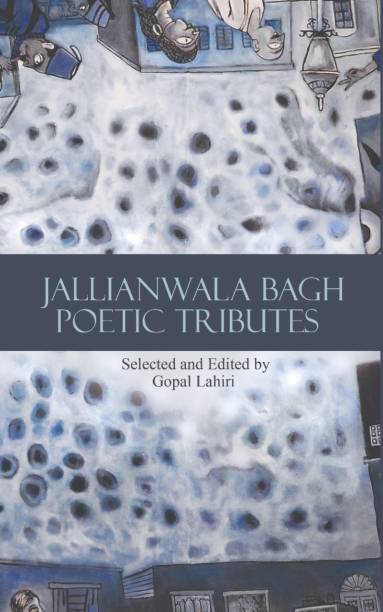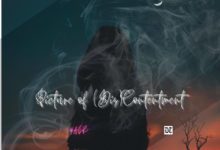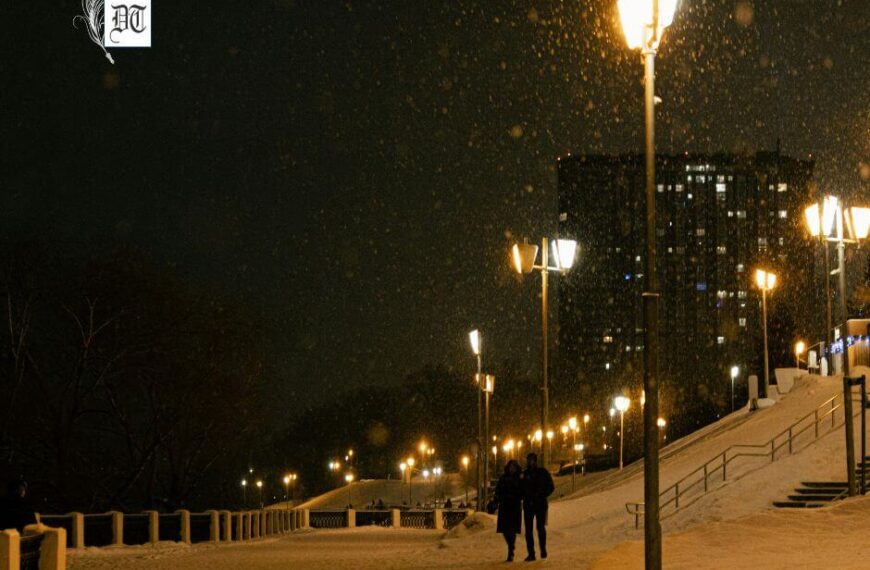Bhaskaranand reviews Jallianwala Bagh: Poetic tributes, edited by Gopal Lahiri. An exclusive for Different Truths.
Jallianwala Bagh: Poetic Tributes is a poetic commemoration of the tragic incident that happened in the Jallianwala Bagh on 13th April 1919. Edited by Gopal Lahiri, a Kolkata-based prolific bilingual poet, critic, writer, and translator to mark the 100th years of the incident, this commemorative collection is significantly unique in several ways. First, forty-three poets from India and four poets from Pakistan have contributed to it. Secondly, all their poems are dedicated to all those who lost their lives in the Jallianwala Bagh massacre. Thirdly, it reminds us of the nefarious repercussion of draconian acts or policy of suppression and oppression of the then British Government. Most importantly, it makes us realise the value of freedom that we attained only after several sacrifices. All the poems are heart-touching, poignant, melancholic, elegiac, reflective, and commemorative; they evoke a sense of eeriness in the readers engrossed in the smoke blanket of mass violence. They are about ‘the salute, the tribute, for those martyrs, the dead who still live within us.’ As for the relevance of the collection in contemporary time, Gopal Lahiri has rightly pointed out in his Editor’s Note:
“…each poem is a way to summon moments of observation on screeching cries and wounds and brings us back to the poetry’s fierce tenderness that can offer each other’s scars in a seamless manner.”
The collection opens with the poem ‘Blood Festival’ by Asama Tahir, the poet from Pakistan, who airs, here, stirrings of her consciousness shaken by the ‘terrible sound of cold-blooded massacre’. She appeals to the brethren to be ‘friends instead of enemies’ for turning ‘this garden of glittering flowers’ into ‘paradise’. She advocates for the restoration of peace and harmony. She envisions the home- return of those killed in the carnage with the hope
…. The river of peace can wash All the Blood of Spring Festival away. -------- And the wounded and dead will ever return home
Another Pakistani poet Ayub Khawar visually presents “The Wounded Vintage: Jallianwala Bagh” that brings to the fore the amity between Hindus, Muslims, and Sikhs, then so strong in the name of national unity and struggle for freedom. He perceives the souls of the martyrs ‘dripping from the eyes of time’. He recognizes the ‘blood of Hindus, Sikhs and Muslims/ mingling together in the contest of Freedom and slavery’. One more Pakistani poet Muhammad Azram, in his ‘O Intruders’, makes a scathing critique of the British Empire and its actions on the day and calls this ill-fated incident ‘brutal and barbarous crimes/ Against humanity’ while Muhammad Shanazar’s “The Rubble of Human Bodies” takes to task the usurp policy and attitude of the Imperialist people. He remarks:
The people who always claim to be the pioneer of peace, They don’t hesitate shedding blood, even for a piece of cheese; All stones of foundation Of their progress are soaked in human blood,
With the brief exegesis of poetic utterances of Pakistani poets, now it is high time to turn our attention to Indian poets and their poems, and their perspectives on the incident of Jallianwala Bagh. Amita Ray, in her “Blood bathed Bagh” turns over the gory pages of history and scratches ‘the walls of a bagh’ and finds ‘syllables of atrocity/ oozing wounds, gaping in concrete.’ She remarks;
…the Empire’s (British) legendary sun famed to never set had dug its own grave in the fury and wrath of a country springing from a blood bathed bagh
The optimistic realism springs from Aneek Chatterjee’s poem “We’re the Baisakhi Crowd” when he envisions the country’s freedom in a new realm:
…from this soil ref flowers will bloom again in the sun, cheering for liberty and freedom, and death to the imperialists
His other poem “Jallianwala Bagh’ records ‘the greatest human rights violations’ among ‘cries, gunshots, footsteps, treacherous laughter.’
While Anjana Basu’s ‘Untiled’ condemns General Dyer, the prime perpetrator for changing the ‘colours of joy to a crimson sea’, Aparna Singh’s Jallianwala Bagh’ speaks of the martyrs’ ‘vagaries of faith’ that led them to the edge of death as ‘They were as common as /Common can be.’ Avijit Roy, in his poem “On Jallianwala Bagh”, weaves ‘wreath of martyrdom’ as ‘The spilled blood impregnated the earth’s womb’ that ensured the resurrection of freedom ‘in gory blooms’ which immortalised those killed in the Bagh. On the other hand, ‘Untitled’, a poem by Ayaz Rasool Nazki, the poet from Kashmir, captures the soothing song of nature that spreads the glory of her dead ‘children’ for ‘a crop of freedom’. He advocates the unity of secular forces for the sake of the national integration –
Together we shall stand tall Asundar we shall never be and fall apart
Bidur P. Chaulagain’s “Feeding the Selfish Wolf” presents his psychological take on the recurring appearing of tyrants in the world.
Gopal Lahiri’s “That Fateful Day” poignantly describes the eerie silence of the blooded ground where the boys and girls, men and women, including children and tiny tots ‘gathered to celebrate the new year of their own in the form of protest’. In this poem, he narrates the horrendous stories of ‘monsters and massacre’, of ‘cowards’, of ‘hatred and injustice by the rulers.’ His description of the carnage that captures ‘each cry, each scream, each valiant face’ is heart-wrenching:
Lying motionless, the bodies on the ground, On the narrow path, on the grass, on the dreadful well, The afterlife of homicide engraved in stone.
Jagari Mukherjee, through her “Times” questions the sanity of the people, exploiters and the exploited. She bemoans the death of the ‘innocent’ and sarcastically digs at the deafness of the people mad with power. On the other hand, Kashiana Singh recollects tears of ‘spewing wails’ in her poem “Phulkari’s in a Well’, counting ‘2000 bullet shells’. Kaustav Bhattacharya’s “Reginald: An Acrostic” acrostically presents his tearful tribute to the victims, hoping for the ‘Amaranths’ to ‘bloom from their blood’. Ketaki Datta’s “Massacre, Stampede and Even More” commemorates the massacre victims of the Jallianwala Bagh, bringing out the brutality of General Dyer to global condemnation. She calls the martyrs ‘crusaders of Humanity’. Madhu Sriwastav talks of safeguarding the innocence, chastity and secular ethos of her “Desh”. In spite of the freedom of the country, she expresses her concerns for the countrymen, under constant fear of terrorism.
Moinak Dutta’s “Jallianwala Bagh” presents a heart-rending painting of the harrowing massacre. He hears ‘silent screams of millions’ around the wall ‘which stood with pride’. Naina Dey’s “Jallianwala Bagh” underlines the value of freedom that India attained thanks to the sacrifices by the millions. She aptly reveals- ‘freedom didn’t come for free/ So history is not a story after all.’ Nishi Pulugurtha, in her first poem “No Lesson Learnt”, speaks of ‘Mayhem and chaos/ Pain, despair and loss,’ and big loss of innocence and humanity. She feels pained to see that ‘Violence goes on even now/ in the name of religion, politics, race, gender…”
In another poem “Past and Present”, she longs for restoration of peace for fostering freedom in actual terms.
While in the poem “They were but Innocents” Paramita Mukherjee Mullick condemns the massacre as ‘a black day of history’, in “The Memorial Speaks”, she visualises the horror of that fateful day. She creates the light of hope, zeal and enthusiasm out of the ‘horrible scene’.
Parneet Jaggi is brilliant in her expression in the poem “You gave us Enough, Dyer!” when she sarcastically expresses her gratitude to General Dyer as had he not been the culprit, India would not have roused to the extreme. She addresses him:
You gave us a case- whose trial goes on in the court of a million hearts, penalizing you each day without a judgment.
Another poem of hers “The Witness Bagh” is a remarkable example of personification and presents ‘Bagh” with striking tropes such as ‘Soil’, ‘grass’, ‘overhead sky’, ‘well’ and ‘walls’ used as evocative metaphors and symbols. Her bruised ‘Bagh’, as the only witness, is still ready to go to the ‘witness box’ to speak the ‘Truth’.
Probal Basak’s “New Vaisakhi” knocks at the ‘grave’s door’ so that the souls of the dead ‘rise like phoenix’ ‘out of the ashes’ for service of the nation. Pranab Ghosh, on the other hand, terms the incident as a ‘shameful scar’ on history. In his poem “Who will Remove the Blood Stains?” he questions:
Half the tears have been wiped, But who will remove the blood stains?
Purabi Bhattacharya, in the poem “To the Grave garden”, remembers ‘wails and whimpers, outcries and rebel yells’ and doesn’t want the dust to ‘settle upon horrific historical reverberations.’ In another poem “The Ticking Yarn’, she drags out ‘moth-eaten pages’ of history from its ‘hibernation.’ In “The Well,” Rajorshi Narayan Patranabis describes the hapless ‘well’ as a mute witness in a different light while his “I am General Dyer” condemns Dyer and curses him to be ‘jailed even in hell’. Rituparna Khan comes up with “Haunted Place” which calls the incident of the Bagh ‘an anathema’ on mankind- “it bore a testimony to atrocity, a heinous act on humanity.’ Rochelle Potkar, on the contrary, recalls the ballad of “Jallianwala Bagh Mystic” who ‘croons blood from the ink pot of antiquity, to spill for the quill of history.’ Sabarna Roy’s “Jallianwala Bagh- 100 Years” takes us to the fateful Bagh ‘through the condensed memories of sounds of gunshots, wails of children and women’. He makes a valid question of serious concern:
Are these holocausts of human social design alone or are there genes embedded, and evolved in our consciousness structure that guides us to such Self-extinction massacres
The two short poems of Sanjeev Sethi are remarkable for their brevity and their striking expression. In “Gore” he is critical of violent mode of oppression and declares that ‘Violence has no gender but it guarantees the birth of blood-and-guts.’ And ‘Lachrymose stokes future bloodbaths.’ In “Précis” he attempts to decipher the mental workings and concludes that ‘Choreographed sloganeering with swigs is as worrisome wrongdoings of the establishment.’ This is how he alludes in the poems to the socio-political complex reality of contemporary times. Sanjukta Dasgupta, in “Mass Murder in a Garden”, censures the order of firing at the innocent people for turning the garden into a mass grave:
A Garden of Eden became a Garden of Death A grotesque garden of Gore out of breath Groans and gruesome grimacing pain The aghast sky watched helpless and forgot to rain.
In “Death Figures”, Sanket Mhate tries to figure out the number of deaths, which nobody knows till date, in the massacre as he is apprehensive of the fact that ‘history is mutilated every single day.’ He remarks:
While we are writing poems on the thresholds somebody else's death Massacres are still kept hidden and death figures are still 'unknown' Who says Jallianwala Bagh is over?
“Tears of Blood” by Santasree Chaudhuri is a ‘melancholic throwback’ to the ‘sordid history of atrocities and mass murder.’ Her poignant documentation of the incident is heart-rending.
Santosh Bakaya’s “A Threnody” is a lament over the mass killing of innocent people and brings to light the rage and anger of even a non-violent personality of Mahatma Gandhi. “It must be so” by Sarala Ram Kamal speaks of communal harmony of the people amongst the Hindus and the Muslims who united against the divisive forces of the Brits. She, with conviction, avers
India is not to be peeled in layers of colours of beliefs, It is a soul survived drawing from the blend of all.
“Untitled” by Satbir Chadha is conspicuous for the beautiful zeal that the poet shows:
The powerful live-in fear Their skin is too dear Fearless are the people who have nothing to lose He downtrodden and oppressed who crave liberty still
Unlike other poets, Sharmila Ray has a different take. Her response to the incident is rather different. She questions, fumes and fumbles at the cold attitude, be it of common people or of the government. Out of frustration she calls it’ a thorn in History’ and wishes – ‘Rest in peace dear Jallianwala Bagh, / Be a footnote in memories.’ She also voices her resentment at making it ‘a tourist spot’. However, the real poetic sense that it evokes is palpable in the last three lines of her second part:
But they forget life is a see-saw and time is also circular. Heroes of today are heaps of sand tomorrow amid the cheering of the dead from the hades.
While Sonali Sarkar’s poem “Forgive us Brothers and Sisters, Our Fellow Countrymen” satirizes the ‘gora Sahibs Irving and Dyer’ Soumyanetra Chattopadhyay expresses her bitterness in the poem “Cruelty, I see you” and uses animal imageries to portray the beastly nature of the sinister English officers:
Of the Tyger that lives within us Of hammer and chain and anvil Shaping the ferocious Tiger elements In our inherently Lamb-ish souls.
“Undead Dyer” of Sunil Sharma is sharp and terse, and ‘haunts the collective and individual psyche.’ He wonders that ‘That day went down as a black day for the ruled and did not matter much for the ‘civilized’ Britain and its dead conscience.’ Nevertheless, he feels proud to say:
The shameless butchery, strangely, led to the national awakening of another kind— and downfall of the Empire, once considered invincible!
Come what may, the cultural and social harmony in India can never succumb to any forces and this is what finds an encouraging and convincing articulation in the poem “Annihilation” by Sutanuka Ghosh Roy. Urna Bose perceives dripping of blood from the ‘walls of our collective memory’ and underlines the significance of ‘actual price of martyrdom’ in her poem “My Mutton Curry”. Vinita Agrawal’s Visiting Jallianwala Bagh” is a reflective take on the incident. She feels so overwhelmed that she finds every particle of the gory garden sacred and sacrosanct. She remarks:
This place is so strong that it leaves me weak. Every blade of grass whittles time. Sacrifice stands tall here Parting my breath. My puny words quietly fall to the ground.
The appraisal of the book remains incomplete if some words of appreciation are not spared for the design, cover and symbolic illustrations that carry the meaningful essence of the tributary poems. Indeed, Partha Pratim Roy deserves a special mention and accolades for his befitting sketches and cover design, dipped in blood.
Further. short bios of the poets, if given, would have added another sheen to the book.
To sum up, Jallianwala Bagh: Poetic Tributes not only reflects the anguish and horror evoked by the incident but also describes vividly and poignantly, with minute detail, the horrific events that even now shake the conscience of thinking people, thus arousing nationalistic consciousness and the realisation of value of freedom. In addition to delineating the socio-political context behind the heinous act of British atrocity, the touching poetic offerings of the collection condemn the acts of suppression and oppression and advocate for the restoration of love, peace, and harmony – the global gospel of humanity – everywhere in the world.
Photo of the cover sourced by the reviewer and visual by Different Truths





 By
By

 By
By
 By
By
Bhashlaranand Jha has done a great job. He has read each of the poems and made peritinent analysis. His way of delving into the depths of poetry is commendable. My regards to him for the review of this huge anthology which he did it with dedication and command of poetic analysis.